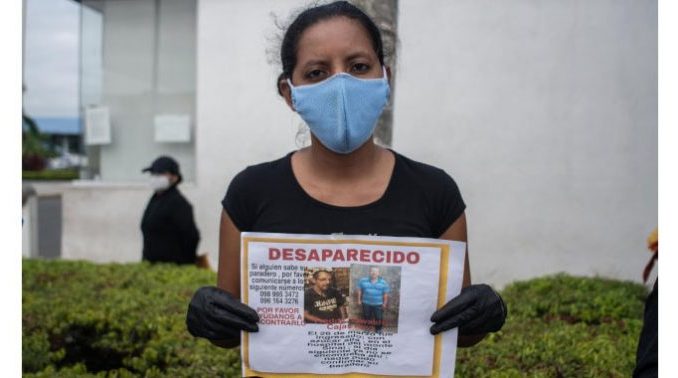
The phenomenon of lost bodies in the COVID-19 pandemic was classified as a violation of human rights and a demonstration of the negligent action of the Ministry of Health, by Billy Navarrete, executive secretary of the Permanent Committee for the Defense of Human Rights (CDH).
This official went to the Audit Commission, as part of the substantiation of the requests for impeachment presented by Pabel Muñoz and Ángel Sinmaleza against the former Minister of Health, Juan Carlos Zevallos.
The human rights specialist considered that, despite the existence of specific protocols for the collection of out-of-hospital corpses; that is, in homes, streets, among other places, these processes were not fulfilled, which led to the fact that, until today, there are families who do not know what happened to the bodies of their relatives.
“This phenomenon was cruel, above all, with low-income families,” he stressed.
Navarrete criticized the latest expressions of the President of the Republic, that the same people who dumped the bodies on the streets now complain that they cannot find their relatives.
“The bodies were lost by the authorities, not by the relatives, and the relatives were never offered the corresponding reparation, nor the necessary psychological support to overcome the trauma that caused this problem,” he claimed.
The assembly members also heard the testimonies of Greta Encalada and Soraya Díaz, relatives of people who did not receive timely care from the public health system. In the first case, Encalada said that her sister was taken in a van, not an ambulance, to the Guasmo Sur hospital, after several hours of waiting, but there was nothing more to do and they returned with the body to the home. Two days later, criminologists arrived, they packed her body, tagged it and took it to the collection center and they never heard from her again.
In the second case, Soraya Díaz, indicated that since she had no response from the firefighters, or from Ecu 91, they took her mother first to the Guasmo Sur hospital, but there was no space. Then she was transferred to the Kennedy Clinic, where she was admitted; days later she died and her body was not returned to them because, according to the protocols, it had to be taken to the Guasmo Sur hospital. They waited a month outside that medical home and they did not give them information; just four months later she was recovered and cremated.
The Colonel of the General Staff Police, Mario Corrales Herrera, head of the Criminalistics Laboratory, assured that the department under his charge complied with all the protocols for the collection of corpses, first directly, and, later, with the coordination of the Joint Task Force created by the resident of the Republic, due to the high number of deaths in Guayaquil and other Guayas cantons.
All the bodies were identified, packed and labeled; there were days when up to 100 corpses were raised. He added that there were cases of unidentified bodies because they were indigent people, among other possible causes.
The vice president of the Commission, Noralma Zambrano, thanked the testimonies given on this day, especially from the citizens Greta Encalada and Soraya Díaz, for the courage to have remembered the difficult moments they lived, even at the risk of being revictimized.

Be the first to comment